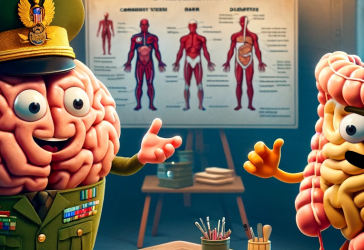Depression a Friend not a Foe: The Overprotective Parent We Never Asked For
Understanding How Depression Aims to Protect Us, But Ends Up Causing More Harm:
The Dark Side of Depression:
Depression is often described as evil, horrible, vile, and consuming. While these descriptions capture the pain of depression, there’s another side to this condition that’s rarely discussed. Depression loves, cares, and protects.
The Protective Nature of Depression:
This might sound strange, but it’s true. The core of depression’s development centres around protection. Imagine depression as a personality within an individual that has a strong desire to keep its host safe. By simplifying the complex process of depression, we can uncover a side of it that acts out of love and care.
Daniel Taylor’s Story:
Let’s explore this with the story of Daniel Taylor. Daniel, a 28-year-old bus driver from Edinburgh, experienced a life-changing event during the festive period of 2017. While driving down Princess Street one evening, a young boy ran into the path of his bus and was severely injured. Despite Daniel’s immediate and conscientious response, the boy tragically died.
The Aftermath and the Rise of Depression:
In the aftermath, Daniel was breathalysed by the police in front of a gathering crowd, feeling deep guilt and shame as he misinterpreted their looks of concern for disgust. Though the investigation cleared him of any wrongdoing, Daniel’s mind was overwhelmed by self-blame and despair. He became clinically depressed, convinced that he was a bad driver and a killer.
Depression’s Misguided Protection:
Depression, in its misguided attempt to protect Daniel, began to take control. It messaged him that driving a bus was dangerous and that people’s judgments were cruel. To keep Daniel safe, depression convinced him to avoid work, social interactions, and even his hobbies. This isolation, though counterproductive, was depression’s way of shielding Daniel from potential harm and judgment. Depression, in its twisted way, loved Daniel so much that it wanted to keep him away from anything that might hurt him again.
The Harm of Overprotection:
However, this protective mechanism caused more harm than good. By isolating Daniel, depression deepened his feelings of guilt and shame. The very act of keeping him safe from others’ judgments also cut him off from the support and reassurance he needed.
The Path to Overcoming Depression:
To overcome depression, it’s crucial to maintain connections with people and activities we enjoy. Recognising that depression stems from a place of love and protection can help us address it more effectively. By acknowledging depression’s intentions, we can start to soothe it, appreciating its protective efforts but signalling that they are unnecessary.
Awareness and Connection: The Key to Recovery:
The key is awareness. When we understand that depression is trying to protect us out of love, we can begin to loosen its grip, regain control, and work through our fear of judgment, guilt, or shame. Awareness and connection are vital in overcoming the overprotective embrace of depression, allowing us to reclaim our lives and mental well-being.
Conclusion:
Depression’s overprotective nature, though rooted in an attempt to shield us from harm, often leads to greater isolation and distress. By understanding that depression acts out of misguided love and care, we can start to address it more compassionately. Maintaining connections with people and engaging in activities we enjoy are crucial steps in loosening depression’s grip and reclaiming control over our lives. Awareness and connection are the keys to navigating through depression’s challenges and fostering mental well-being.
For more information, support, and help, visit http://www.empathyrooms.com






